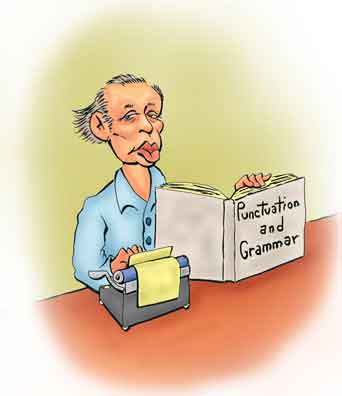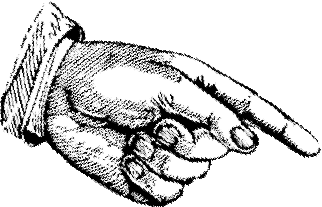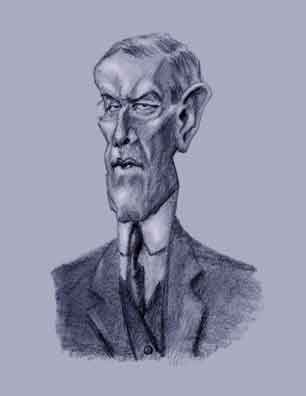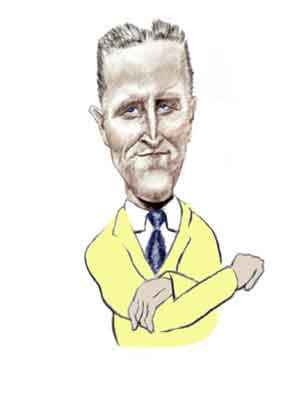E. E. Cummings
a thoroughly modern poet
If you take a sample of a recently composed verse like:

E. E. Cummings
thoroughly modern
you once promised me an eternity.
but the curtain closes, tortured, silent,
There is only belligerence, only a memory.
... and point out how such "modernistic" poetry is clearly influenced by the work of American poet E. E. Cummings who wrote stuff like:
wings flutters and flops along the
grass collides with trees and
houses and finally,
butts into the river
... you'll get many a spittle flinging diatribe from E. E.'s fans.
At least you will when someone points out that the first poem was

GENERATED BY A
COMPUTER!
Huh! the anti-modernists snort. What more do we need to do to prove that so-called "innovative poetry" is nothing but a meaningless mish-mash of words strung together in near random fashion. In short, they sneer, modern poetry is for phonies.
Hold on there, say E. E.'s fans. Yes, the poem may have been generated by a computer, but it was selected by a human being. If you have a computer randomly select words from lists of nouns, adjectives, and verbs which have themselves been selected by humans, it's no surprise that after perusing and discarding many a garbled computer verse, a human can pick something that will resemble a poem written by a person.
The pro-poetry argument, then, is that the computer/anti-poet crowd have simply found the old principle that if you have a computer randomly generate lists of words, eventually you will end up with the texts of Shakespeare's plays. But that doesn't mean that the computer has the literary talent of Shakespeare nor that William was an automaton.
Certainly before anyone starts dismissing the innovative and even revolutionary verse of E. E. Cummings, they might want to learn something about his life, times, and
 ART
ART
But 'ere we do that (to use a poetic phrase), we must address the odd capitalization that E. E. used, particularly in regard to his name.
For years - decades - it was always customary to write E. E.'s name in lower case sans punctuation. That is, as e e cummings. This was, we read, his preference and was to minimize the importance of the poet compared to the poetry.
Why, you read further, he even legally changed his name to lower case! Hence, we always read e e cummings.
Alas, like much what you read on the Fount of All Knowledge, what you just read isn't true.
For one thing we do not always read the name as e e cummings. Instead on a lot of his books it's just good old E. E. Cummings. Certainly in ordinary correspondence and when signing his name, conventional capitalization was E. E.'s norm. In the original publications of the poems in magazines, his name was listed as E. E. Cummings.
So we will defer to E. E.'s usual practice and stick with conventional punctuation.
And so what about E. E.?
Edward Estlin Cummings came from a well set up family in Cambridge, Massachusetts, the famous Boston suburb. He had decided early on he wanted to be a poet and as a kid he began writing a poem a day. Of course in high school he also spent a lot of time studying Greek and Latin which was what high class kids studied in the olden days. Later he attended Harvard where he got both a B. A. in 1915 and an MA the next year.
At the time this was a very good education. After all, in the early 20th century a lot of college professors even at places like Harvard, Oxford, and Cambridge (England), only had a Bachelor's Degree (the Oxford Master of Arts degrees awarded to both J. R. R. Tolkien and C. S. Lewis were honorary). E. E.'s dad, in fact, had taught at Harvard but then became the minister at the Old South Church. The Old South Church was a Congregationalist denomination although the Cummings family were Unitarians. With such (ptui) liberal theology, Estlin - as his folks called him - was raised in an environment that encouraged free and original thinking.
As you might expect, for someone determined to become a poet, E. E. became part of the literary scene at Harvard. He published poems in the Harvard Advocate (still being printed today) and helped start up another magazine the Harvard Monthly. A selection of his poems were included in a short book published in 1917, Eight Harvard Poets.
E. E. (as we'll call him) realized he was fortunate that he had the parents he did and who continued to encourage his literary ambitions. He paid high tributes to both, particularly his mother, Rebecca, whom he said was one of the most remarkable people he had ever known. On November 2, 1926, Rebecca and Edward were traveling north toward Mount Chocorua in New Hampshire. After passing through Center Ossipee, they were crossing a railroad track when the car was hit by the Boston and Maine train. Edward was killed immediately and Rebecca - who was driving - was seriously injured. She survived, though, and lived another 20 years.
The accident has been sometimes cited as the beginning of E. E.'s real adulthood, although this may be pardonable hyperbole. After all, at the time he was 32 years old. He had already achieved recognition as a poet, been an ambulance driver in World War I, accused of espionage, and imprisoned.

Woodrow Wilson
He Kept America Out - and In.
Perhaps that last bit requires a bit of elaboration. From 1914 to 1916, President Woodrow Wilson was praised when he kept America out of the - quote - "European War" - unquote. But when Americans learned that Germany was hoping upon satisfactory completion of the war to turn the American Southwest over to Mexico, American support for what was now a World War firmed up. So when Congress declared war in April, many Americans joined the ranks and others volunteered to be ambulance drivers.
Which is what E. E. did. However, he had a friend and fellow driver, William Brown, who had written letters with significant anti-war sentiments. Naturally the letters were read by the censors and when the French officials heard about the seditious American, they arrested him. For good measure, they arrested E. E., too. Both were held for three months before things got sorted out.

F. Scott Fitzgerald
Already Successful
But like many prisoners of a philosophical and literary bent, E. E. put the time of enforced idleness to good use. He able to write his first extended work, The Enormous Room, based on his incarceration. The book was published in 1922 and was well received. It was even lauded by Scott Fitzgerald, who was already a successful writer.
After E. E.'s release he returned home briefly but decided to go back to Paris. This was the time of the "Lost Generation" where a lot of young Americans who wanted to forget the war settled along the Seine. There he and other expatriates began crafting their art. The next year he published his first book of poems, Tulips and Chimneys to generally good reviews.
Of course, poets are not known for raking in big bucks. So when he went to Europe E. E. got by on handouts from his parents. But he also had a little help from his friends. In particularly, he had a little help from his rich friend Scofield Thayer.
Now there aren't too many people who would pick up the tab so a friend could be a poet. But we have to remember this was the era of the literary patron. Then as now a lot of rich people thought it was good for their reputation and their conscience to donate to the arts. The method of donations was varied. For one thing, you could make donations to schools and art organizations. Although the donations weren't tax deductible, that didn't matter since there weren't hardly any taxes at that time anyway.
But wealthy individuals could also fund the individual artists. For painters you bought their canvases or sculptures. For writers you could pay their bills, either directly or indirectly by buying their original manuscripts. Other patrons patronized by funding literary magazines. You put up the dough for printing and distribution costs and also paid the contributors. Everything was simplified if the patron was also the editor.
And in 1920 Scofield and his friend the (wealthy) physician James Sibley Watson decided to revive a magazine called The Dial which from its first printing in 1840 had gone defunct and resurrected many times over. That E. E. and Scofield knew each other brings up the old saw is that the quickest way to getting a poem published is to have gone to school with the editor. As we'll see this rather snarky comment isn't true, but it is also true that Scofield had also been a classmate of not only E. E. but of T. S. Eliot. In fact, Scofield accepted T. S.'s now iconic poem The Wasteland without even having seen it.
It's important to remember that The Dial published a lot more than just works by the friends of the editors. In addition to E. E., the luminaries whose works appeared in The Dial are literally a who's who of early 20th century art and literature. They included - and to skip the rather lengthy list just click here - Gilbert Seldes (known as Sganarelle), Charles Demuth, Arthur Rimbaud, Joseph Stella, Alyse Gregory, Leo Stein, Kwei Chen, Edvard Munch, Arthur Dove, Adolphe Dehn, Gerhart Hauptmann, José Ortega y Gasset, Thomas Hart Benton, I. A. Richards, Herman George Scheffauer, Duncan Grant, Hermann Hesse, Max Weber, Randolph Bourne, Augustus John, Ezra Pound, Julius Meier-Graefe, Maxwell Bodenheim, Kenneth Burke, Remy de Gourmont, Eduard von Keyserling, Herbert J. Seligmann, Frans Masereel, Ramon Fernandez, William Carlos Williams, John Dewey, Bertrand Russell, Julien Benda, Amy Lowell, Georges Seurat, Jean Cocteau, Robert Hillyer, May Sinclair, George Santayana, Djuna Barnes, Vincent van Gogh, George Moore, Winslow Homer, Ananda Coomaraswamy, Ivan Bunin, Maxim Gorki, Louis Aragon, E. M. Forster, Edward Sapir, Edwin Muir, Fyodor Dostoevsky, Marc Chagall, Stewart Davis, Nikolai Leskov, D. H. Lawrence, Édouard Vuillard, John Eglinton, Franz Marc, Herbert Read, Marcel Proust, J. Middleton Murry, Odilon Redon, Thomas Craven, Henri Matisse, Sacheverell Sitwell, Raffaello Piccolli, Heinrich Mann, Louis Zukofsky, Virginia Woolf, Pierre Bonnard, Knut Hamsun, Alfeo Faggi, Mabel Dodge Luhan, Ernst Barlach, H. L. Mencken, Constantin Brâncuși, Arthur Schnitzler, Elie Nadelman, Oswald Spengler, Clive Bell, Paul Valéry, Adolf Dehn, Jacob Epstein, Marianne Moore, Wyndham Lewis, John Marin, Scofield Thayer (yes, Scofield published his own work), Thomas Jewell Craven, Roger Fry, Stuart Davis, Sherwood Anderson, Yvor Winters, Stanley Kunitz, Meridel Le Sueur, William Butler Yeats, Jules Romains, Auguste Rodin, Maxim Gorky, Edwin Arlington Robinson, Vachel Lindsay, Hart Crane, Gertrude Stein, S. Foster Damon, Leon Srabian Herald, Lewis Mumford, Ford Maddox Ford, Maurice de Vlaminck, T. S. Eliot, Georgia O'Keeffe, Arthur Wilson later known as Winslow Wilson, Waldo Frank, Benedetto Croce, W. B. Yeats, Raymond Mortimer, Miguel de Unamuno, Gilbert Seldes, Elie Faure, Thomas Mann, Manuel Komroff, George Saintsbury, André Derain, Richard Aldington, Malcolm Cowley, Paul Rosenfeld, Stefan Zweig, Van Wyck Brooks, Karel Čapek, Ford Madox Ford, Paul Claudel, Padraic Colum, Paul Gauguin, Pablo Picasso, Jack Yeats, Joseph Campbell, Hugo von Hofmannsthal, Aristide Maillol, Élie Faure, John Cowper Powys, Marie Laurencin, Paul Morand, Alexander Archipenko, Carl Sandburg, Charles Trueblood, Edmund Wilson, Alfred Kreymborg, Luigi Pirandello, Joseph Conrad, A. L. Kroeber, Wallace Stevens, Anatole France, John Dos Passos, Conrad Aiken, Katherine Mansfield, Kahlil Gibran, Jean Toomer, Logan Pearsall Smith, Oskar Kokoschka, Henry McBride, Henri Rousseau, Paul Cézanne, Mina Loy, Gaston Lachaise, Philip Littell, Johan Bojer, Rainer Maria Rilke, Llewelyn Powys, Charles K. Trueblood, and Auguste Renoir.
(To return to top of the list click here).
The point, though, is that with Scofield and Dr. Watson putting up the cash, the contributors actually got paid and sometimes substantially. E. E. had a number of poems published in The Dial - seven in 1920 - and in 1925, the magazine selected him for a cash prize of $2500. This was more than enough to live on for a whole year.
Whatever you think of modern poetry, E. E.'s poems have been among the most popular of the 20th century with people who never met him. One thing that helps - we must admit it - is that E. E.'s poems are short. After all you'll be hard pressed to find high school kids who actually like the interminable drudgery of "Evangeline" and "The Song of Hiawatha". But E. E. remains, relatively speaking, surprisingly popular amongst the younger set.
It's also no secret that while Scofield was publishing E. E.'s poetry, giving him awards, and paying his bills, E. E. had been carrying on with Elaine, Scofield's wife. After Scofield's and Elaine's inevitable split, E. E. married Elaine. You'll read that the marriage lasted two months. Actually it seems that Elaine - who was something of a free spirit - moved out after two months but the marriage didn't officially end for another couple of years. Another short marriage followed and E. E.'s longest relationship - 30 years - was with Marion Morehouse, who was an actress and model. It was, though, a bit of an on-again/off-again thing.
By the mid-1920's E. E. was recognized as a serious poet with his poems and reviews of his poems and books appeared in literary magazines. But it wasn't until after World War II that he became well-known to Joe and Josephine Blow on the street and was widely anthologized. The war we should remember put a crimp in the publishing industry and with an end of the war's austerity programs, publishers began a printing boom. So reprints of E. E. books were run off and he published new books.
With the advent of the 1950's E. E. found himself one of the most celebrated poets of the century. In 1952 and 1953 he was invited to give the Charles Eliot Norton Lectures at Harvard (which was part of a visiting professorship). They were well attended and even today are a good introduction to E. E.'s work.
As was, if not common, then not that odd for people (particularly writers) of his generation, E. E. was known to have taken a bit more drink above the recommended modern limits. He also smoked cigarettes. So it isn't too much of a surprise that E. E. was taking it easy on his farm in Madison, New Hampshire, he suffered a stroke and died at age 67.
References
E.E. Cummings, Catherine Reef, Clarion Books, 2006.
E.E. Cummings, Christopher Sawyer-Laucanno, Sourcebooks, 2004.
"E. E. Cummings - 1894-1962, Academy of American Poets.
"E. E. Cumming's Life", Nicholas Everett, The Oxford Companion to Twentieth-century Poetry in English, Ian Hamilton (Editor), 1994.
"E. E. Cummings", Dictionary of Unitarian and Universalist Biographies.
"The Americans: E.E.Cummings & Ernest Hemingway", Ian Brinton, English Association First World War Bookmarks No. 7, The English Association, 2014.
"The Early Advocate: e.e. cummings", Sarah Hopkinson, The Harvard Advocate.
"E. E. Cummings - 1894-1962", Poetry Foundation.
"The Issue of Capitalization", Meaghan Kelly, Decapitalization, An Introduction to E. E. Cummings, 2008.
"Capital Case - The Poetry of E. E. Cummings", Paul Muldoon, February 23, 2014, The New Yorker, March 3, 2014.
"The Story of Poet E.E. Cummings' Surprising Life", Jeff Dolven, Chicago Tribune, January 9, 2009.
"How to Solve an 88-Year Old Mystery", Susan Cheever, The New York Times Magazine, June 27, 2014.
"The Rebellion of E.E. Cummings", Adam Kirsch, Harvard Magazine, March-April, 2005.
"Why Do Writers Drink So Much?", Lawrence Samuel, Psychology Today, January 22, 2018.